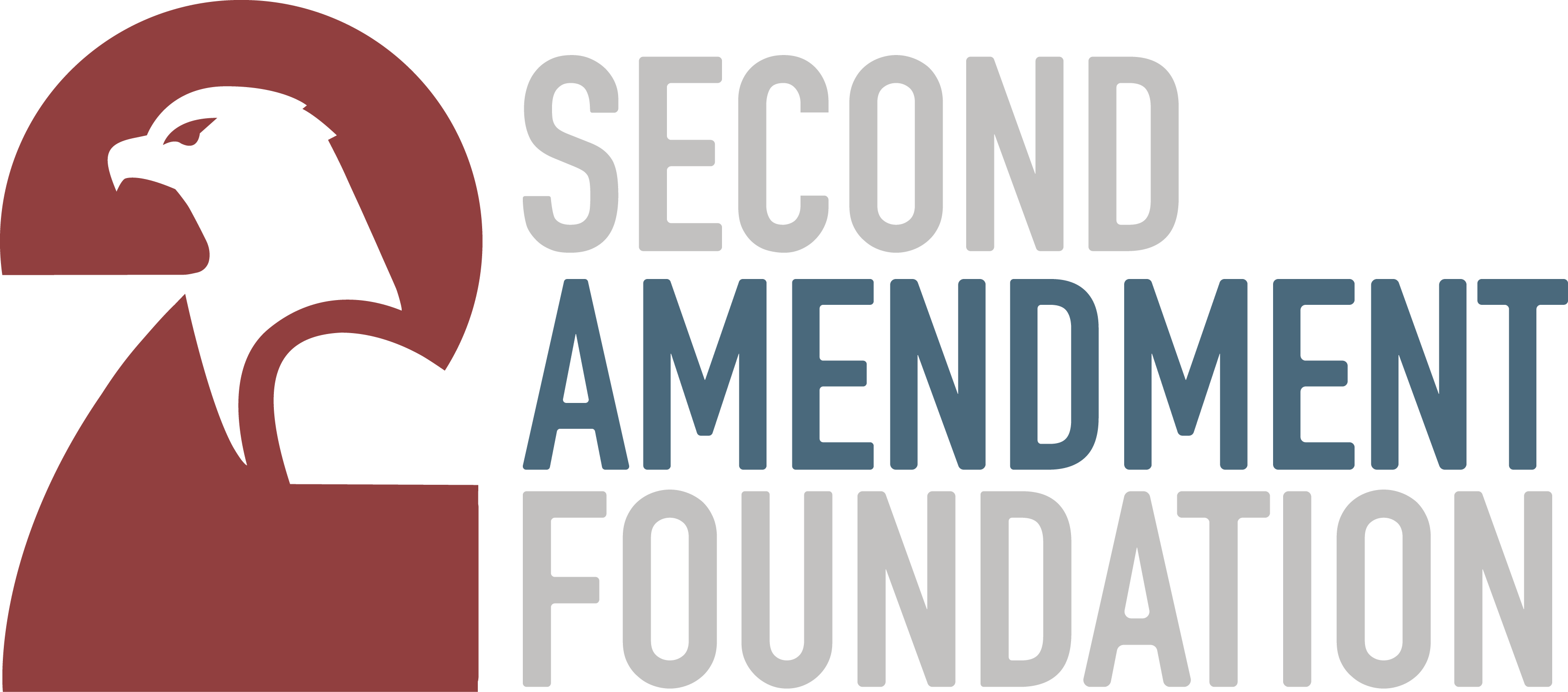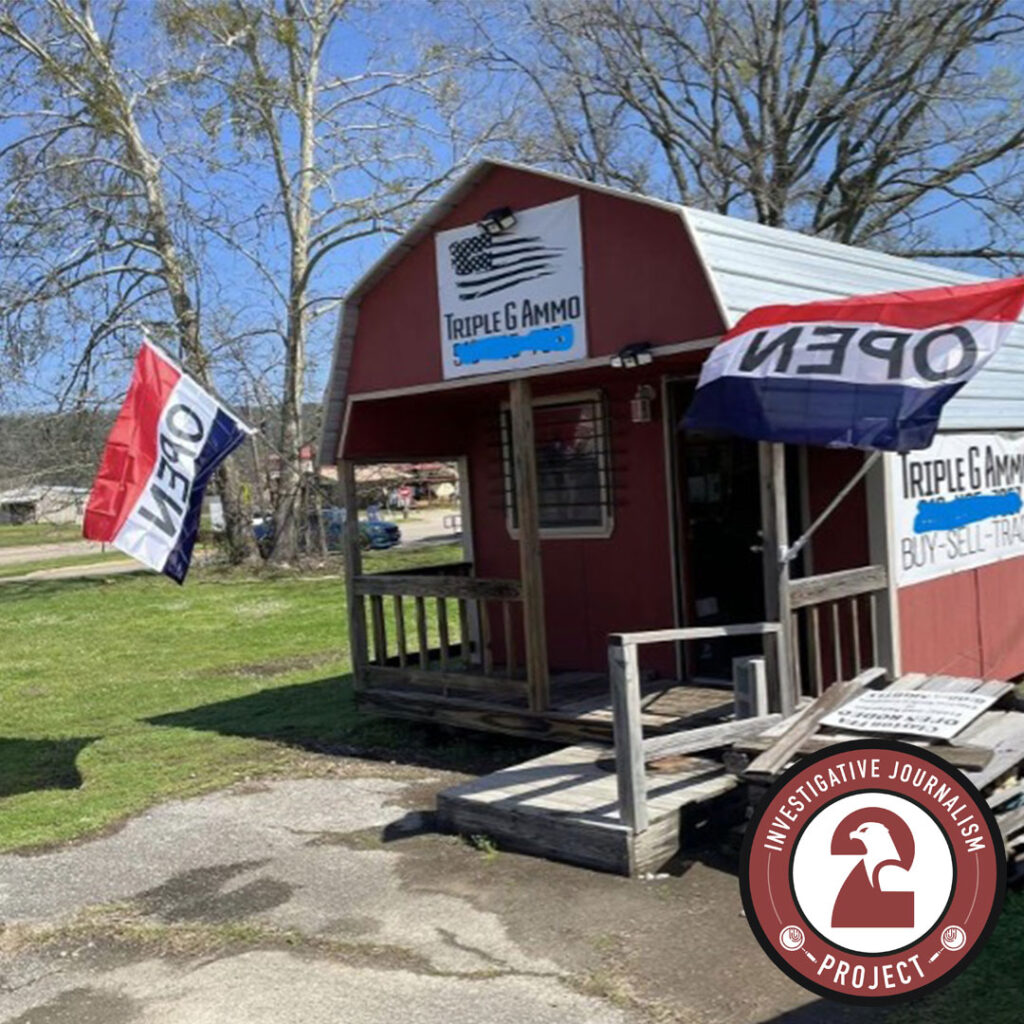by Lee Williams
Russell Fincher needed three jobs just to provide for his family in Joe Biden’s economy. He taught high school history, served as a Baptist minister and sold guns and ammunition out of a small shed in the backyard of his Tuskahoma, Oklahoma home. Somehow, he also found time to coach a winning Little League team.
For reasons that are still not known, Fincher came to the attention of the ATF. A story published last year chronicled how 15 heavily armed ATF agents raided Fincher’s home June 15, handcuffed him on his deck and then yelled, screamed and threatened the 52-year-old man – in front of this 13-year-old son – until he “voluntarily” surrendered his Federal Firearm License, (FFL).
According to documents filed with the court, ATF agent Darrell Withem was responsible for the “knock and announce” during the search warrant execution. ATF agent Jon Butler carried the ballistic shield, and Agent Ben Nechiporenko took the battering ram, which was not used since Fincher opened the door and let them in. Agent Theodore Mongell led the raid.
“You’re done. We have to shut you down,” Fincher recalled Mongell saying. “You tell all your FFL buddies we are coming for them. We are shutting the gun shows down.”
The ATF agents seized dozens of Fincher’s personal firearms, which he estimated were worth more than $50,000.
“If you’re willing to forfeit them, we can make a lot of this go away,” Fincher said Mongell told him.
Last November, a federal grand jury issued a three-count indictment charging Fincher with two felonies and one misdemeanor:
- Count one: Engaging in the business of dealing firearms without a license, a felony.
- Count two: Selling ammunition to a prohibited person, a felony.
- Count three: Making false entry in records by a federal firearms dealer, a misdemeanor.
Fincher was arrested, booked and released, subject to a $10,000 unsecured bond.
Fincher’s Federal Public Defender negotiated a plea agreement, in which Fincher would plead guilty to selling ammunition to a prohibited person, which is punishable by up to 15 years imprisonment and a $250,000 fine. Prosecutors agreed to dismiss the two remaining charges once Fincher signed the plea agreement.
The deal would keep Fincher out of prison. Both sides agreed that three years of probation would be “the appropriate disposition of the case.” The plea agreement also specified that Fincher would not contest the forfeiture of 39 firearms.
There were two major admissions Fincher would have to make if he took the plea. The first required he confess to selling firearms and ammunition without a Federal Firearm License, even though he had a valid FFL during the dates specified.
“Beginning on or about February 2, 2021, and continuing until on or about June 16, 2023, within the Eastern District of Oklahoma, I, Russell Richard Fincher, not being a licensed dealer of firearms within the meaning of Chapter 44, Title 18, United States Code and federal law, did willfully engage in the business of dealing in firearms at wholesale and retail. During this time, I devoted time, attention and labor to dealing in firearms as a regular course of trade and business with the principal objective of livelihood and profit through the repetitive purchase and resale of firearms. During this time, I also devoted time, attention and labor to dealing in firearms as a regular course of trade and business to predominately earn a profit though the repetitive purchase and resale of firearms. Finally, during this time period, the firearms I sold were not for the enhancement of a personal collection or for a hobby and were not part of my personal collection of firearms, and I did this with the knowledge that my conduct was unlawful,” the plea agreement states.
The second admission concerned Fincher’s alleged sale of ammunition to a prohibited person. It does not say how Fincher should have known that the purchaser was a prohibited person. Like most states, Oklahoma does not require background checks for ammunition purchases.
“Within the above-mentioned time period, specifically, on or about May 5, 2023, I, Russell Richard Fincher, also knowingly sold sixty (60) rounds of Sig Sauer branded .40 S&W ammunition to C.I., knowing and having reasonable cause to believe that C.I. had been convicted of a crime punishable by imprisonment for a term exceeding one year,” the plea agreement states.
There was no elocution-type statement in the plea agreement pertaining to the misdemeanor charge of making false entries in records of a federal firearm dealer.
Fincher signed the plea agreement May 17, along with his Federal Public Defender, Brian Deer, and Assistant U.S. Attorney Joshua Satter, who prosecuted the case.
As of Wednesday, Fincher has not yet been sentenced by the court.
Although he spoke freely for a previous story, Fincher did not return calls seeking comment for this story. It is not difficult to understand why he took the plea. Few people have the financial resources to defend themselves against the full weight of the United States Government, and a prison sentence would have destroyed his family.
Unanswered questions
Fincher’s original indictment was sealed by the court. Only a redacted version is available through the federal court’s public access computer system. It contains no information on the ATF investigation that led to the search warrant, raid and arrest.
Assistant U.S. Attorney Joshua Satter declined to comment about the investigation, and referred questions to Assistant U.S. Attorney Jarrod Leaman, prosecutor and public information officer for the United States Attorney’s Office for the Eastern District of Oklahoma.
Leaman would not say why Fincher was charged with engaging in the business of dealing firearms without a license, when he had a valid FFL.
“Litigation is still pending,” Leaman said Wednesday. “I cannot comment outside the four corners of the indictment.”
Instead, Leaman pointed to count three of Fincher’s indictment, the misdemeanor charge that accused him of making false entries in records by an FFL. The indictment alleges Fincher falsely recorded in his Acquisition and Disposition book that several firearms, mostly Palmetto State Armory lower receivers, were transferred to a party identified as “T.F.,” when they were not actually transferred.
Leaman would not say how Fincher was supposed to know that the ammunition purchaser, identified only as “C.I.” was a prohibited person.
“I can’t comment on that subject matter,” he said.
Neither would Leaman say if “C.I.” referred to the purchaser’s initials or stood for “confidential informant.”
“I can’t comment about that,” Leaman said.
Takeaways
The real question doesn’t involve who bought a couple boxes of ammo, or what Fincher wrote in his A&D book.
The real question is why ATF would bother with a guy like Fincher at all.
During a recent hearing of the House Judiciary Committee, ATF Director Steve Dettelbach claimed his agents target trigger-pullers, shooters and gun traffickers, the “worst of the worst.”
Nowadays, hardcore gang members control many historically blue cities, and Mexican drug cartel sicarios operate with impunity on both sides of our porous border. These are murderous, heavily armed psychopaths and certainly qualify as Dettelbach’s “worst of the worst.” However, the ATF isn’t pursuing them with the same vigor they’ve shown for softer targets, like Baptist ministers and sleepy airport executives.
Fincher’s case involved a perilous SWAT-type raid, the forfeiture of $50,000 worth of firearms, a teenager who was seriously traumatized and a high-school teacher, clergyman and respected member of his community with no previous criminal history who is now a convicted felon, all for the violation of a single ATF rule – the very definition of a victimless crime.
I asked Leaman if this constituted justice.
“I don’t have any comment outside of the four corners of the plea agreement,” he said.


